afterLoad (456.3KB) (3.29ms)
afterInitialise (1.27MB) (41.26ms)
afterRoute (827.66KB) (16.32ms)
beforeRenderComponent com_content (35.1KB) (2.85ms)
Before Access::preloadComponents (all components) (67.27KB) (471μs)
After Access::preloadComponents (all components) (98.07KB) (2.18ms)
Before Access::preloadPermissions (com_content) (1.6KB) (13μs)
After Access::preloadPermissions (com_content) (3.29MB) (14.39ms)
Before Access::getAssetRules (id:62 name:com_content.category.20) (130.65KB) (94μs)
After Access::getAssetRules (id:62 name:com_content.category.20) (7.38KB) (3.15ms)
Before Access::getAssetRules (id:8 name:com_content) (51.77KB) (61.68ms)
After Access::getAssetRules (id:8 name:com_content) (6.17KB) (27μs)
afterRenderComponent com_content (1.5MB) (206ms)
afterDispatch (32.39KB) (12.02ms)
beforeRenderRawModule mod_articles_category (READ MORE...) (398.66KB) (22.4ms)
afterRenderRawModule mod_articles_category (READ MORE...) (69.48KB) (126ms)
beforeRenderRawModule mod_custom (BOOST YOUR IMMUNE DEFENSE) (6.45KB) (28μs)
afterRenderRawModule mod_custom (BOOST YOUR IMMUNE DEFENSE) (4.42KB) (202μs)
beforeRenderRawModule mod_articles_latest (Latest news) (976B) (14μs)
afterRenderRawModule mod_articles_latest (Latest news) (71.8KB) (89.19ms)
beforeRenderRawModule mod_tags_popular (Search) (2.09KB) (27μs)
afterRenderRawModule mod_tags_popular (Search) (28.16KB) (110ms)
beforeRenderRawModule mod_custom (the Vitamin and Mineral Guide) (960B) (23μs)
afterRenderRawModule mod_custom (the Vitamin and Mineral Guide) (1.02KB) (40μs)
beforeRenderRawModule mod_custom (Weight loss that works) (736B) (11μs)
afterRenderRawModule mod_custom (Weight loss that works) (928B) (22μs)
beforeRenderRawModule mod_custom (Get additionel and more detailed knowledge ) (752B) (53μs)
afterRenderRawModule mod_custom (Get additionel and more detailed knowledge ) (944B) (23μs)
beforeRenderRawModule mod_custom (Q10 goes by many names) (736B) (9μs)
afterRenderRawModule mod_custom (Q10 goes by many names) (928B) (19μs)
beforeRenderRawModule mod_custom (Check this before you buy a Q10 product) (752B) (8μs)
afterRenderRawModule mod_custom (Check this before you buy a Q10 product) (944B) (18μs)
beforeRenderRawModule mod_custom (Are you taking supplements) (736B) (9μs)
afterRenderRawModule mod_custom (Are you taking supplements) (2.28KB) (18μs)
beforeRenderRawModule mod_custom (Antiaging) (720B) (9μs)
afterRenderRawModule mod_custom (Antiaging) (912B) (17μs)
beforeRenderRawModule mod_custom (Exercise) (720B) (9μs)
afterRenderRawModule mod_custom (Exercise) (912B) (17μs)
beforeRenderRawModule mod_custom (Useful Links) (720B) (8μs)
afterRenderRawModule mod_custom (Useful Links) (1.02KB) (19μs)
beforeRenderModule mod_articles_category (READ MORE...) (268.2KB) (3.98ms)
afterRenderModule mod_articles_category (READ MORE...) (1.25KB) (55μs)
beforeRenderModule mod_custom (BOOST YOUR IMMUNE DEFENSE) (6.81KB) (14μs)
afterRenderModule mod_custom (BOOST YOUR IMMUNE DEFENSE) (1.28KB) (2.07ms)
beforeRenderModule mod_articles_latest (Latest news) (592B) (27μs)
afterRenderModule mod_articles_latest (Latest news) (1.27KB) (33μs)
beforeRenderModule mod_tags_popular (Search) (1.73KB) (13μs)
afterRenderModule mod_tags_popular (Search) (1.27KB) (24μs)
beforeRenderModule mod_custom (the Vitamin and Mineral Guide) (1.31KB) (10μs)
afterRenderModule mod_custom (the Vitamin and Mineral Guide) (1.28KB) (25μs)
beforeRenderModule mod_custom (Weight loss that works) (336B) (9μs)
afterRenderModule mod_custom (Weight loss that works) (1.27KB) (20μs)
beforeRenderModule mod_custom (Get additionel and more detailed knowledge ) (368B) (9μs)
afterRenderModule mod_custom (Get additionel and more detailed knowledge ) (1.3KB) (20μs)
beforeRenderModule mod_custom (Q10 goes by many names) (336B) (9μs)
afterRenderModule mod_custom (Q10 goes by many names) (1.27KB) (20μs)
beforeRenderModule mod_custom (Check this before you buy a Q10 product) (352B) (8μs)
afterRenderModule mod_custom (Check this before you buy a Q10 product) (1.28KB) (19μs)
beforeRenderModule mod_custom (Are you taking supplements) (352B) (9μs)
afterRenderModule mod_custom (Are you taking supplements) (1.28KB) (19μs)
beforeRenderModule mod_custom (Antiaging) (336B) (8μs)
afterRenderModule mod_custom (Antiaging) (1.27KB) (20μs)
beforeRenderModule mod_custom (Exercise) (336B) (8μs)
afterRenderModule mod_custom (Exercise) (1.25KB) (19μs)
beforeRenderModule mod_custom (Useful Links) (336B) (9μs)
afterRenderModule mod_custom (Useful Links) (3.77KB) (20μs)
beforeRenderRawModule mod_menu (Main Menu - English) (37.51KB) (1.86ms)
afterRenderRawModule mod_menu (Main Menu - English) (190.16KB) (2.66ms)
beforeRenderModule mod_menu (Main Menu - English) (720B) (5μs)
afterRenderModule mod_menu (Main Menu - English) (4.86KB) (1.07ms)
beforeRenderRawModule mod_languages (Sprogskift) (3.94KB) (22μs)
afterRenderRawModule mod_languages (Sprogskift) (21.66KB) (1.54ms)
beforeRenderModule mod_languages (Sprogskift) (720B) (6μs)
afterRenderModule mod_languages (Sprogskift) (5.31KB) (22μs)
beforeRenderRawModule mod_finder () (6.34KB) (11μs)
afterRenderRawModule mod_finder () (132.96KB) (3.99ms)
beforeRenderModule mod_finder () (704B) (5μs)
afterRenderModule mod_finder () (3.29KB) (36μs)
beforeRenderRawModule mod_custom () (6.62KB) (147μs)
afterRenderRawModule mod_custom () (26.52KB) (1.87ms)
beforeRenderModule mod_custom () (704B) (6μs)
afterRenderModule mod_custom () (1.23KB) (52μs)
beforeRenderRawModule mod_menu (Main Menu - English) (5.07KB) (108μs)
afterRenderRawModule mod_menu (Main Menu - English) (6.3KB) (777μs)
beforeRenderModule mod_menu (Main Menu - English) (720B) (4μs)
afterRenderModule mod_menu (Main Menu - English) (1.25KB) (44μs)
beforeRenderRawModule mod_languages (Sprogskift Mobil) (912B) (18μs)
afterRenderRawModule mod_languages (Sprogskift Mobil) (3.89KB) (2.37ms)
beforeRenderModule mod_languages (Sprogskift Mobil) (720B) (5μs)
afterRenderModule mod_languages (Sprogskift Mobil) (1.27KB) (37μs)
beforeRenderRawModule mod_finder () (2.3KB) (12μs)
afterRenderRawModule mod_finder () (6.29KB) (660μs)
beforeRenderModule mod_finder () (704B) (5μs)
afterRenderModule mod_finder () (1.23KB) (50μs)
beforeRenderRawModule mod_custom () (8.66KB) (183μs)
afterRenderRawModule mod_custom () (904B) (260μs)
beforeRenderModule mod_custom () (704B) (3μs)
afterRenderModule mod_custom () (2.43KB) (28μs)
beforeRenderRawModule mod_custom () (688B) (87μs)
afterRenderRawModule mod_custom () (896B) (101μs)
beforeRenderModule mod_custom () (704B) (3μs)
afterRenderModule mod_custom () (2.71KB) (23μs)
afterRender (301.73KB) (10.91ms)
| 1 x afterRenderComponent com_content (1.5MB) (27.53%) | 206.48ms |
| 1 x afterRenderRawModule mod_articles_category (READ MORE...) (69.48KB) (16.73%) | 125.50ms |
| 1 x afterRenderRawModule mod_tags_popular (Search) (28.16KB) (14.65%) | 109.91ms |
| 1 x afterRenderRawModule mod_articles_latest (Latest news) (71.8KB) (11.89%) | 89.19ms |
| 1 x Before Access::getAssetRules (id:8 name:com_content) (51.77KB) (8.22%) | 61.68ms |
| 1 x afterInitialise (1.27MB) (5.5%) | 41.26ms |
| 1 x beforeRenderRawModule mod_articles_category (READ MORE...) (398.66KB) (2.99%) | 22.40ms |
| 1 x afterRoute (827.66KB) (2.18%) | 16.32ms |
| 1 x After Access::preloadPermissions (com_content) (3.29MB) (1.92%) | 14.39ms |
| 1 x afterDispatch (32.39KB) (1.6%) | 12.02ms |
| 1 x afterRender (301.73KB) (1.45%) | 10.91ms |
| 1 x afterRenderRawModule mod_finder () (132.96KB) (0.53%) | 3.99ms |
| 1 x beforeRenderModule mod_articles_category (READ MORE...) (268.2KB) (0.53%) | 3.98ms |
| 1 x afterLoad (456.3KB) (0.44%) | 3.29ms |
| 1 x After Access::getAssetRules (id:62 name:com_content.category.20) (7.38KB) (0.42%) | 3.15ms |
| 1 x beforeRenderComponent com_content (35.1KB) (0.38%) | 2.85ms |
| 1 x afterRenderRawModule mod_menu (Main Menu - English) (190.16KB) (0.35%) | 2.66ms |
| 1 x afterRenderRawModule mod_languages (Sprogskift Mobil) (3.89KB) (0.32%) | 2.37ms |
| 1 x After Access::preloadComponents (all components) (98.07KB) (0.29%) | 2.18ms |
| 1 x afterRenderModule mod_custom (BOOST YOUR IMMUNE DEFENSE) (1.28KB) (0.28%) | 2.07ms |
| 1 x afterRenderRawModule mod_custom () (26.52KB) (0.25%) | 1.87ms |
| 1 x beforeRenderRawModule mod_menu (Main Menu - English) (37.51KB) (0.25%) | 1.86ms |
| 1 x afterRenderRawModule mod_languages (Sprogskift) (21.66KB) (0.21%) | 1.54ms |
| 1 x afterRenderModule mod_menu (Main Menu - English) (4.86KB) (0.14%) | 1.07ms |
| 1 x afterRenderRawModule mod_menu (Main Menu - English) (6.3KB) (0.1%) | 777μs |
| 1 x afterRenderRawModule mod_finder () (6.29KB) (0.09%) | 660μs |
| 1 x Before Access::preloadComponents (all components) (67.27KB) (0.06%) | 471μs |
| 1 x afterRenderRawModule mod_custom () (904B) (0.03%) | 260μs |
| 1 x afterRenderRawModule mod_custom (BOOST YOUR IMMUNE DEFENSE) (4.42KB) (0.03%) | 202μs |
| 1 x beforeRenderRawModule mod_custom () (8.66KB) (0.02%) | 183μs |
| 1 x beforeRenderRawModule mod_custom () (6.62KB) (0.02%) | 147μs |
| 1 x beforeRenderRawModule mod_menu (Main Menu - English) (5.07KB) (0.01%) | 108μs |
| 1 x afterRenderRawModule mod_custom () (896B) (0.01%) | 101μs |
| 1 x Before Access::getAssetRules (id:62 name:com_content.category.20) (130.65KB) (0.01%) | 94μs |
| 1 x beforeRenderRawModule mod_custom () (688B) (0.01%) | 87μs |
| 1 x afterRenderModule mod_articles_category (READ MORE...) (1.25KB) (0.01%) | 55μs |
| 1 x beforeRenderRawModule mod_custom (Get additionel and more detailed knowledge ) (752B) (0.01%) | 53μs |
| 1 x afterRenderModule mod_custom () (1.23KB) (0.01%) | 52μs |
| 1 x afterRenderModule mod_finder () (1.23KB) (0.01%) | 50μs |
| 1 x afterRenderModule mod_menu (Main Menu - English) (1.25KB) (0.01%) | 44μs |
| 1 x afterRenderRawModule mod_custom (the Vitamin and Mineral Guide) (1.02KB) (0.01%) | 40μs |
| 1 x afterRenderModule mod_languages (Sprogskift Mobil) (1.27KB) (0%) | 37μs |
| 1 x afterRenderModule mod_finder () (3.29KB) (0%) | 36μs |
| 1 x afterRenderModule mod_articles_latest (Latest news) (1.27KB) (0%) | 33μs |
| 1 x afterRenderModule mod_custom () (2.43KB) (0%) | 28μs |
| 1 x beforeRenderRawModule mod_custom (BOOST YOUR IMMUNE DEFENSE) (6.45KB) (0%) | 28μs |
| 1 x After Access::getAssetRules (id:8 name:com_content) (6.17KB) (0%) | 27μs |
| 1 x beforeRenderRawModule mod_tags_popular (Search) (2.09KB) (0%) | 27μs |
| 1 x beforeRenderModule mod_articles_latest (Latest news) (592B) (0%) | 27μs |
| 1 x afterRenderModule mod_custom (the Vitamin and Mineral Guide) (1.28KB) (0%) | 25μs |
| 1 x afterRenderModule mod_tags_popular (Search) (1.27KB) (0%) | 24μs |
| 1 x beforeRenderRawModule mod_custom (the Vitamin and Mineral Guide) (960B) (0%) | 23μs |
| 1 x afterRenderRawModule mod_custom (Get additionel and more detailed knowledge ) (944B) (0%) | 23μs |
| 1 x afterRenderModule mod_custom () (2.71KB) (0%) | 23μs |
| 1 x beforeRenderRawModule mod_languages (Sprogskift) (3.94KB) (0%) | 22μs |
| 1 x afterRenderRawModule mod_custom (Weight loss that works) (928B) (0%) | 22μs |
| 1 x afterRenderModule mod_languages (Sprogskift) (5.31KB) (0%) | 22μs |
| 1 x afterRenderModule mod_custom (Weight loss that works) (1.27KB) (0%) | 20μs |
| 1 x afterRenderModule mod_custom (Get additionel and more detailed knowledge ) (1.3KB) (0%) | 20μs |
| 1 x afterRenderModule mod_custom (Q10 goes by many names) (1.27KB) (0%) | 20μs |
| 1 x afterRenderModule mod_custom (Antiaging) (1.27KB) (0%) | 20μs |
| 1 x afterRenderModule mod_custom (Useful Links) (3.77KB) (0%) | 20μs |
| 1 x afterRenderRawModule mod_custom (Q10 goes by many names) (928B) (0%) | 19μs |
| 1 x afterRenderModule mod_custom (Check this before you buy a Q10 product) (1.28KB) (0%) | 19μs |
| 1 x afterRenderModule mod_custom (Exercise) (1.25KB) (0%) | 19μs |
| 1 x afterRenderRawModule mod_custom (Useful Links) (1.02KB) (0%) | 19μs |
| 1 x afterRenderModule mod_custom (Are you taking supplements) (1.28KB) (0%) | 19μs |
| 1 x afterRenderRawModule mod_custom (Check this before you buy a Q10 product) (944B) (0%) | 18μs |
| 1 x afterRenderRawModule mod_custom (Are you taking supplements) (2.28KB) (0%) | 18μs |
| 1 x beforeRenderRawModule mod_languages (Sprogskift Mobil) (912B) (0%) | 18μs |
| 1 x afterRenderRawModule mod_custom (Antiaging) (912B) (0%) | 17μs |
| 1 x afterRenderRawModule mod_custom (Exercise) (912B) (0%) | 17μs |
| 1 x beforeRenderRawModule mod_articles_latest (Latest news) (976B) (0%) | 14μs |
| 1 x beforeRenderModule mod_custom (BOOST YOUR IMMUNE DEFENSE) (6.81KB) (0%) | 14μs |
| 1 x Before Access::preloadPermissions (com_content) (1.6KB) (0%) | 13μs |
| 1 x beforeRenderModule mod_tags_popular (Search) (1.73KB) (0%) | 13μs |
| 3 x beforeRenderModule mod_custom () (704B) (0%) | 12μs |
| 1 x beforeRenderRawModule mod_finder () (2.3KB) (0%) | 12μs |
| 1 x beforeRenderRawModule mod_custom (Weight loss that works) (736B) (0%) | 11μs |
| 1 x beforeRenderRawModule mod_finder () (6.34KB) (0%) | 11μs |
| 1 x beforeRenderModule mod_custom (the Vitamin and Mineral Guide) (1.31KB) (0%) | 10μs |
| 2 x beforeRenderModule mod_finder () (704B) (0%) | 10μs |
| 1 x beforeRenderRawModule mod_custom (Q10 goes by many names) (736B) (0%) | 9μs |
| 1 x beforeRenderRawModule mod_custom (Antiaging) (720B) (0%) | 9μs |
| 1 x beforeRenderRawModule mod_custom (Exercise) (720B) (0%) | 9μs |
| 1 x beforeRenderModule mod_custom (Get additionel and more detailed knowledge ) (368B) (0%) | 9μs |
| 1 x beforeRenderModule mod_custom (Q10 goes by many names) (336B) (0%) | 9μs |
| 1 x beforeRenderModule mod_custom (Are you taking supplements) (352B) (0%) | 9μs |
| 1 x beforeRenderModule mod_custom (Useful Links) (336B) (0%) | 9μs |
| 1 x beforeRenderRawModule mod_custom (Are you taking supplements) (736B) (0%) | 9μs |
| 1 x beforeRenderModule mod_custom (Weight loss that works) (336B) (0%) | 9μs |
| 2 x beforeRenderModule mod_menu (Main Menu - English) (720B) (0%) | 9μs |
| 1 x beforeRenderRawModule mod_custom (Useful Links) (720B) (0%) | 8μs |
| 1 x beforeRenderModule mod_custom (Antiaging) (336B) (0%) | 8μs |
| 1 x beforeRenderRawModule mod_custom (Check this before you buy a Q10 product) (752B) (0%) | 8μs |
| 1 x beforeRenderModule mod_custom (Check this before you buy a Q10 product) (352B) (0%) | 8μs |
| 1 x beforeRenderModule mod_custom (Exercise) (336B) (0%) | 8μs |
| 1 x beforeRenderModule mod_languages (Sprogskift) (720B) (0%) | 6μs |
| 1 x beforeRenderModule mod_languages (Sprogskift Mobil) (720B) (0%) | 5μs |
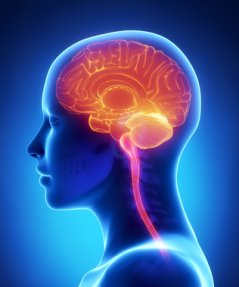 Vitamin C is extremely important for the brain’s blood vessels, nerve cells, neurotransmitters, and connective tissue. An estimated 10 percent of the adult population is vitamin C deficient without specific symptoms. According to a scientific article in the Danish journal Aktuel Videnskab, vitamin C deficiency during pregnancy may harm brain development in the fetus.
Vitamin C is extremely important for the brain’s blood vessels, nerve cells, neurotransmitters, and connective tissue. An estimated 10 percent of the adult population is vitamin C deficient without specific symptoms. According to a scientific article in the Danish journal Aktuel Videnskab, vitamin C deficiency during pregnancy may harm brain development in the fetus.







 All our cells contain different
All our cells contain different  Nothing beats a good night’s sleep. Still, sleep disturbances are widespread, and surprisingly many people struggle through the day, trying to survive on far too much coffee and other stimulants – and they cannot do anything about the problem. It turns out that many vegetarians, users of birth control pills, older people, and diabetics suffer from sleep problems because they lack
Nothing beats a good night’s sleep. Still, sleep disturbances are widespread, and surprisingly many people struggle through the day, trying to survive on far too much coffee and other stimulants – and they cannot do anything about the problem. It turns out that many vegetarians, users of birth control pills, older people, and diabetics suffer from sleep problems because they lack 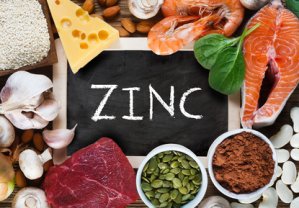 Even minor
Even minor  A team of scientists from Oregon State University in the United States has managed to explain why lack of
A team of scientists from Oregon State University in the United States has managed to explain why lack of  It came as good news for vegetarians, vegans and sclerosis sufferers when Danish health authorities allowed strong
It came as good news for vegetarians, vegans and sclerosis sufferers when Danish health authorities allowed strong  Cancer researchers from the University of Iowa in the United States have finally clarified how extremely high doses of
Cancer researchers from the University of Iowa in the United States have finally clarified how extremely high doses of 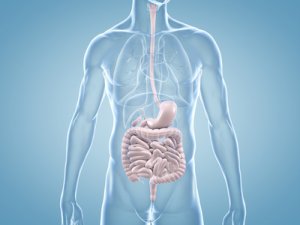 Every day, the intestinal immune system has to defend itself against hordes of microbes and toxins. If it fails to function optimally, there is an increased risk of infections, allergies, and inflammatory diseases. More and more research reveals that essential nutrients help to control the intestinal immune defense. Also, new research shows how important a well-functioning immune system is for our digestion and health in general. This article takes a closer look at the vitamins that are known to be particularly important for the intestinal immune system. Another thing that is vital is to have adequate amounts of gastric juice.
Every day, the intestinal immune system has to defend itself against hordes of microbes and toxins. If it fails to function optimally, there is an increased risk of infections, allergies, and inflammatory diseases. More and more research reveals that essential nutrients help to control the intestinal immune defense. Also, new research shows how important a well-functioning immune system is for our digestion and health in general. This article takes a closer look at the vitamins that are known to be particularly important for the intestinal immune system. Another thing that is vital is to have adequate amounts of gastric juice. Millions of people who are overweight suffer from blood sugar imbalances and metabolic syndrome – often without being aware of it. A study shows that people with metabolic syndrome are severely vitamin E-deficient. This poses a serious threat to their health, as
Millions of people who are overweight suffer from blood sugar imbalances and metabolic syndrome – often without being aware of it. A study shows that people with metabolic syndrome are severely vitamin E-deficient. This poses a serious threat to their health, as  We all know the importance of eating a healthy diet, exercising, getting sufficient sleep, and sunbathing with caution. Still, life is not always that simple, and even if we stick with the official guidelines for healthy living, it can often be challenging to get adequate amounts of the essential nutrients. Nonetheless, supplements are useful as compensation for these shortcomings. In fact, the use of such products can be compared with plant fertilizers that make plants look healthy, flourish and thrive
We all know the importance of eating a healthy diet, exercising, getting sufficient sleep, and sunbathing with caution. Still, life is not always that simple, and even if we stick with the official guidelines for healthy living, it can often be challenging to get adequate amounts of the essential nutrients. Nonetheless, supplements are useful as compensation for these shortcomings. In fact, the use of such products can be compared with plant fertilizers that make plants look healthy, flourish and thrive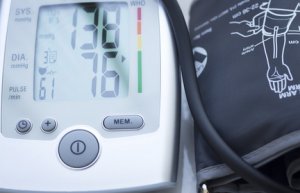 There is widespread potassium deficiency, and it is common knowledge that an increased
There is widespread potassium deficiency, and it is common knowledge that an increased 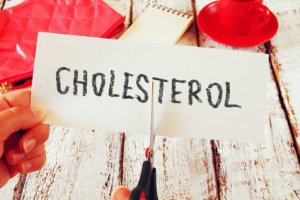 It has been discussed whether it is
It has been discussed whether it is 